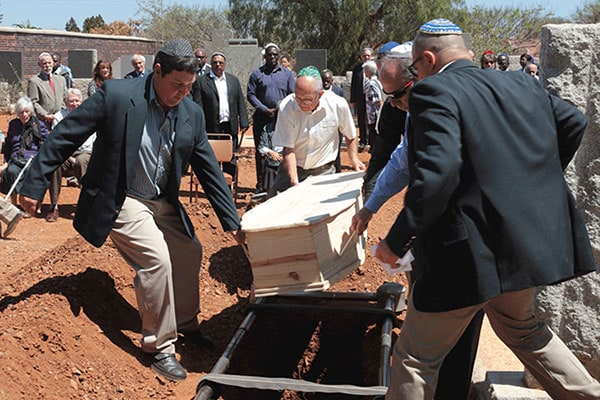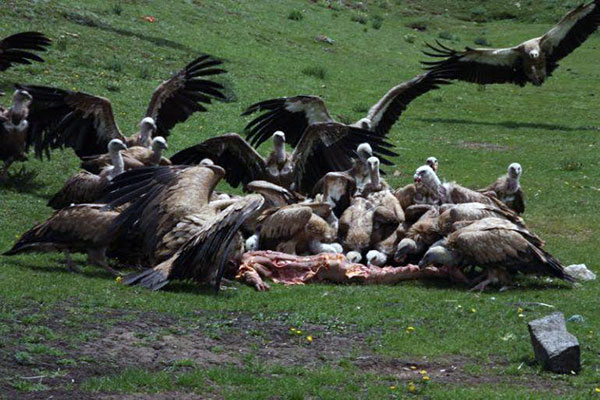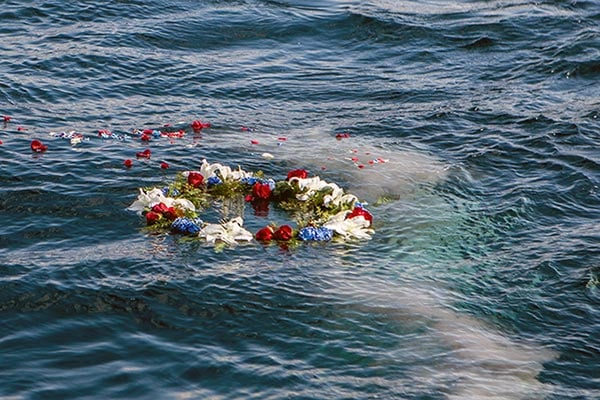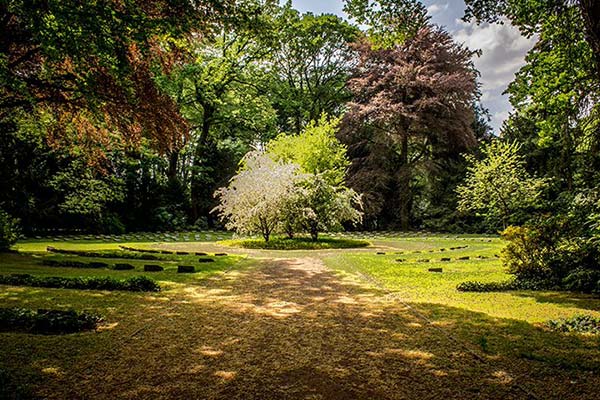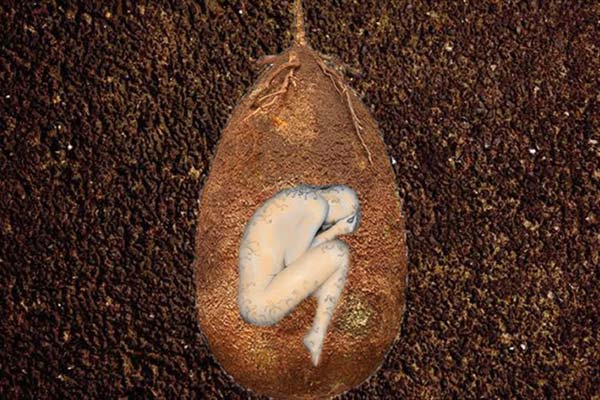Death is never the end. More than 280,000 Canadians passed away in 2019. Their memories remain amongst those who loved and knew them.
Burial is important to allow a person's memory to continue forward. Yet deciding how to go about burying someone can be confusing.
Why do people bury their deceased loved ones? What are a family's different options for burial? What are the costs, and what insurance is available to cover the costs?
Answer these questions and you can find the right and appropriate way to commemorate a family member. Here is your comprehensive guide.
Burial Meaning
The earliest human burial dates to 78,000 years ago. Burial has been the standard means of interring human remains ever since.
Burial has several purposes. It delegates a spot where family members and friends can gather to commemorate the person who died. A tombstone or grave marker serves as a monument to honour the deceased individual.
A decomposing body can spread bacteria or viruses to anyone who touches it. Putting bodies underground limits the risk of contamination or damage to the remains. These pathogens go into the ground, where plants can break them down.
Burial is customizable. A person can be buried with objects that they loved, including clothing and jewelry.
It is a ceremony that can fit a number of religious traditions. Many religions have their own guidelines for burials, and many religious texts have prayers for burial services.
As time has gone on, burial practices have changed. More options for the disposition of remains have become available, including cremation. Yet burial remains popular and affordable for all people.
Hebrew Basic Burial
A traditional burial utilizes a casket. The deceased person is placed within a solid wood or metal casket, which cemetery staff lower into the ground.
Many traditional burials occur after open-casket funerals. In order to make the body presentable, funeral workers use large amounts of preservatives to prevent decomposition.
The casket and chemicals are very expensive. Quotes vary, but some funeral packages cost thousands of dollars. They also waste a significant amount of resources, and chemicals can damage soil and water.
A Hebrew basic burial comes from the Jewish tradition of burial. Caskets are made with thin pieces of wood that break down easily. Funeral workers do not inject chemicals into the body, allowing it to decompose into the earth.
Many people of Jewish descent choose to get a basic burial. But the option is available for people of all religions and backgrounds. It is a good choice for people looking to limit their expenses and be more environmentally friendly.
Sky Burial
Sky burial also known as "Exposure" is a practice that comes from Buddhist traditions. Family members bring a person's body to a mountaintop where it can decompose. Scavengers can come and consume the remains.
Some Buddhists believe in the transmigration of spirits. A spirit moves from one body to another through the process of reincarnation.
A body has little meaning in itself, so it should be deposed of in a generous fashion. Giving a body to scavengers serves as a good act that feeds needy animals.
Sky burial is rare inside of Canada. But it may be an option for people who believe in reincarnation, especially in a Buddhist sense. Family members who want to perform sky burials should find a remote location to do so.
Burial at Sea
For burial at sea, funeral workers will place the body inside a light coffin. A family will have their funeral on a boat, and workers will then deposit the body into the water.
Many veterans and active-duty military members choose burial at sea. Entire bodies or ashes can go into the water.
The Canadian Environmental Protection Act of 1999 provides strict Disposal at Sea Regulations. Family members who want a burial must apply for a permit with the government.
The permit must include specific details about the site where the remains will go. It may take an extensive amount of time to receive a permit, so family members should apply for one as soon as possible. The fee for the permit is $2,500.
Family members should bear in mind that their loved one will have no gravesite. If they want a physical memorial for their relative, they should prepare a plan for one somewhere else. Many families who opt for burial at sea erect a monument on the seaside.
A living reef memorial in Vancouver allows people to place ashes inside artificial reefs. Fish can then use the reefs as a home and feeding location. This option does not require an extensive permit, but there are few locations that contain remains.
Green Burial
Traditional burials have a substantial impact on the environment. They use resources that could be used to build homes and other important buildings.
There are several different options for green burial. One option involves wrapping the body in a shroud that lets the remains decompose. The body then goes inside of a hole, as with a traditional burial.
Some locations offer green burial grounds. These are places where workers will dig graves by hand, taking care not to damage plant life.
A body goes into a grave, and wildflowers are allowed to grow over it. Most grounds do not allow grave markers besides plants. A family member can grow a tree or bury their loved one under one as a way of marking the grave.
The costs for green burial vary. Some burials can be very expensive due to how uncommon green burial is. Many decomposable caskets cost thousands of dollars.
Tree Pod Burial
Tree pod burial is a special type of green burial. Funeral workers arrange the body into a fetal position.
The body then goes inside a biodegradable shell. As the body and shell break down, they give nutrients to a sapling. The sapling grows into an adult tree over a few years.
Tree pod burial is also an option for cremated remains. The remains can provide similar nutrients to the tree.
Companies like Capsula Mundi offer tree pods for people all over the world, including in Canada. A pod costs only a few hundred dollars.
The family will still need to find a plot to bury the pod in. They may be able to bury it on land they own, provided that they conform with their local laws.
How Much Does A Burial Plot Cost?
The average cost of burial in Canada lies between $5,000 and $10,000. The cost varies so significantly because of several factors.
The means of burial is the main one. Sky burial is the cheapest option, followed by Hebrew basic and green burials. Yet it is extremely difficult to have a sky burial in Canada, and each province has its own regulations for green burials.
Where a burial takes place is another very important one. The costs vary from province to province, but there are some things that family members can keep in mind.
Veterans in Canada can qualify for financial assistance. There are organizations like the Last Post Fund that cover the costs of funerals and burials for veterans.
Burial Costs in Canada
Burial costs in Canada vary from province to province due to different factors. Keep on reading to know more details about how the burial costs of each province differ from others.
Alberta
Alberta has many options for burial plots. The province has several laws that govern how cemeteries can operate and handle bodies. Family members planning for an Alberta burial should read these laws.
Most funeral homes in Alberta offer plots as components of funeral packages. It may be difficult to buy a plot without buying other services. Packages can run as high as $12,000, with individual plots costing a few hundred dollars.
Lethbridge allows green burials within its borders. Individuals can receive green burials at any municipal cemetery, which keeps expenses down.
British Columbia
British Columbia also has diverse options for plots. Most plots lie within traditional cemeteries, with many cemeteries having ties to denominations.
As with Alberta, most plots are bought through funeral packages. Mountain View Cemetery in Vancouver does offer individual plots for purchase. The cheapest plot for a casket burial is $9,500.
Royal Oak Cemetery in Victoria and other properties offer green burial options. The burial of cremated remains is cheaper than the burial of whole bodies.
Manitoba
Manitoba's rates depend on where exactly a person is buried. Cities like Winnipeg have far higher rates than more rural areas. A single plot can cost more than $2,500 in the city.
Plots for cremated remains are cheaper because they are smaller than casket plots. Someone may be able to find a plot for cremated remains for less than $1,250.
New Brunswick
Cremation has become very popular in New Brunswick. Families who want to bury cremated remains should consider this province over the others.
Cremation packages can cost less than $1,700, including the cost of burial. Funeral services are additional expenses.
Newfoundland and Labrador
Newfoundland and Labrador have smaller costs for plots than in other provinces. Some cemeteries offer plots without the need to purchase larger packages.
Most plots cost somewhere around $2,000. The larger the plot, the more expensive it is.
Nova Scotia
Nova Scotia cemeteries are running out of room. This has driven up the cost of funeral packages and individual plots.
Some Catholic cemeteries charge several thousand dollars for an individual plot. Other institutions have cheaper options, but they tack on fees for nighttime and weekend burials.
Ontario
As with Manitoba's cities, Ontario's cities charge very high rates for burials. Entire funeral packages can cost tens of thousands of dollars in Toronto. This is due to high demand and the lack of room in many institutions.
Ontario provides financial assistance to people who cannot afford to bury their loved ones. Families must apply through the municipal government in order to receive assistance. Most people who receive assistance are homeless or have few loved ones.
Prince Edward Island
Prince Edward Island tends to have cheaper prices than in other provinces. In general, cemeteries prefer traditional or Hebrew basic burials. A plot with a grave marker can cost less than $2,500.
Prince Edward Island also has green burial sites inside official cemeteries. It is against provincial law to have a green burial on private land.
Quebec
Quebec is another cheap province. Families can find entire funeral packages that cost less than $6,000. Individual plots may cost less than $2,000.
The more rural the location is, the cheaper the plot may be. Plots in religious cemeteries may cost more than ones in non-denominational cemeteries.
Saskatchewan
Saskatchewan burial plot prices vary. Cemeteries offer many different options, including burial plots with vaults. But many families can obtain a plot for less than $2,000.
Saskatchewan cemeteries add additional fees for winter burials. Some cemeteries may charge several hundred dollars more during the winter months. Family members can also pay for cemetery employees to maintain the monuments of their loved ones.
Burial Insurance
A burial insurance policy covers the cost of a funeral. It works similarly to life insurance.
A person signs up for one, usually when they are in their fifties. They pay into the plan, and their policy builds up a cash value as they do so.
When they pass away, the insurer pays an amount of money to their family. This covers the cost of their funeral, including the burial plot and memorial marker.
There are many policies available to cover funeral costs. Preneed funeral insurance involves going through a funeral home.
A person picks the funeral and burial arrangements they want. They then pay an insurance policy that protects their arrangements. The home will fulfill the person's requests once they pass away.
Final expense insurance may be more all-inclusive. Nearly all packages cover funeral and burial costs. But some also help with end-of-life expenses, including medical bills.
Buying an insurance package will provide for a person's burial, funeral, and memorialization. Someone who wants to cover all of their concerns should opt for final expense insurance. Family members can purchase additional packages so the funeral and burial will be secure.
What to Know About Burial
Burial is the traditional way to deposit someone's remains. It is a good option for a family that wants a memorial for their loved one.
People concerned about the environmental impact of their burial can choose a Hebrew basic, green, or tree pod burial. Veterans can choose burials at sea, while sky burial is a rare choice.
Most plots cost several thousand dollars to purchase, though rates vary substantially. Buying insurance can keep expenses down.
You can find affordable insurance in little time. Insurdinary lets you compare quotes for final expense packages. Get your quotes today.

